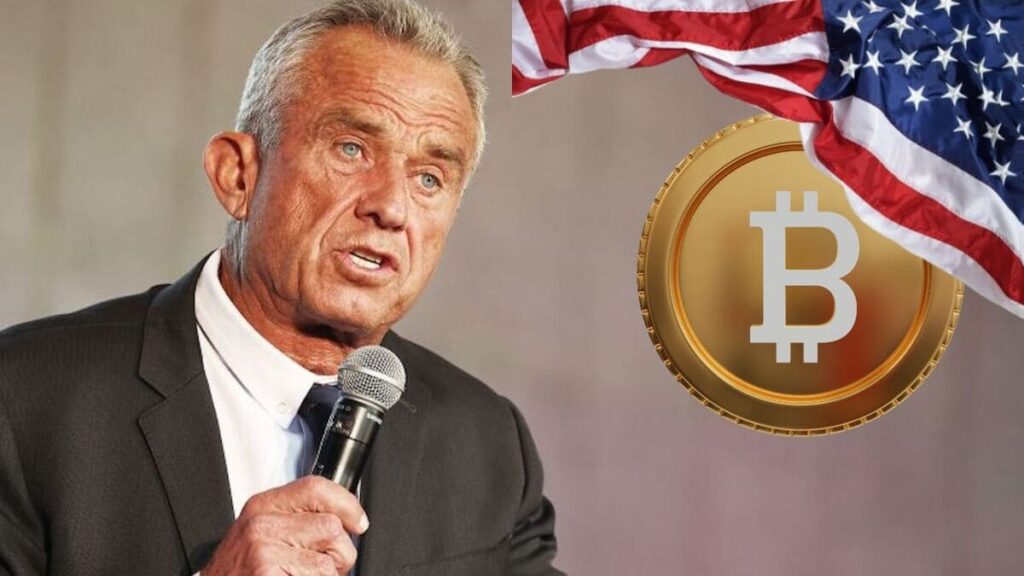TL;DR
- Robert F. Kennedy Jr. promises to end the “regulatory hostility” towards cryptocurrencies in the United States if elected president.
- He criticized the Biden administration’s negative stance towards Bitcoin and other cryptocurrencies, stating that this is forcing companies in the sector to move abroad.
- Kennedy assured that he will establish regulations that protect consumers without stifling innovation and will encourage decentralized currencies, also criticizing the attitude of the Federal Reserve, the SEC, and the FDIC towards blockchain technology.
Robert F. Kennedy Jr., an independent candidate for the presidency of the United States, has announced his intention to end what he calls “regulatory hostility” towards cryptocurrencies if he is elected.
During his speech at the Consensus conference on May 30, Kennedy highlighted the importance of ensuring financial sovereignty and transactional freedom for American citizens. According to the candidate, these measures are essential to keep the United States as a leader in blockchain technology and to prevent more crypto companies from relocating abroad.
Kennedy argued that currency decentralization is a vital defense against totalitarianism. He cited the example of Canada in 2022 when the government froze both fiat assets and cryptocurrencies of “Freedom Convoy” protesters opposing vaccination mandates for truckers. This event, which was later declared unconstitutional by the Federal Court of Canada, highlights, according to Kennedy, the need for citizens to have control over their own finances.
In his criticisms of the Biden administration, Kennedy noted that the negative attitude towards Bitcoin (BTC) and other cryptocurrencies is driving the industry out of the United States. He mentioned that current laws have forced many companies in the sector to move to countries like Switzerland and Singapore, where they find a more favorable environment. He assured that if he becomes president, he will put an end to this trend and will ensure that America remains the epicenter of blockchain technology.
Kennedy promised to establish regulations that protect consumers from fraud and deceptive schemes without stifling innovation. In his vision, truly decentralized currencies should be encouraged, and the flow of capital into these currencies should be facilitated. He also criticized the attitude of the Federal Reserve, the Securities and Exchange Commission (SEC), and the Federal Deposit Insurance Corporation (FDIC) for being unwelcoming towards blockchain technology.
Robert Kennedy Puts the Crypto Debate on the American Table
Currently, Kennedy faces a tough battle on his way to the White House. The May 30 FiveThirtyEight polls place him with only 9.8% support compared to Donald Trump’s 41.2% and President Joe Biden’s 39.5%. Although his favorability has decreased, with 42% of respondents expressing an unfavorable opinion of him, it is still lower than Trump’s (53.7%) and Biden’s (55.5%).
The crypto industry in the United States has repeatedly argued that the SEC does not have authority over digital assets, as there are no specific laws from Congress granting it such jurisdiction. Additionally, they argue that cryptocurrencies do not fit the definition of securities under the Howey test. Despite this, the SEC has launched multiple lawsuits against crypto companies for alleged violations of securities laws.
Meanwhile, the FDIC, in its 2023 risk report, described the risks associated with digital assets as “novel and complex.” The Federal Reserve, for its part, has increased supervision over banks’ relationships with crypto companies.
The United States presidential election is scheduled for November 5, and positions on cryptocurrency regulation could play a key role in the results, especially among voters interested in technological innovation and financial freedom. Kennedy, although a candidate with slim chances according to current polls, has brought to the table a crucial issue that could influence in the electoral debate.











